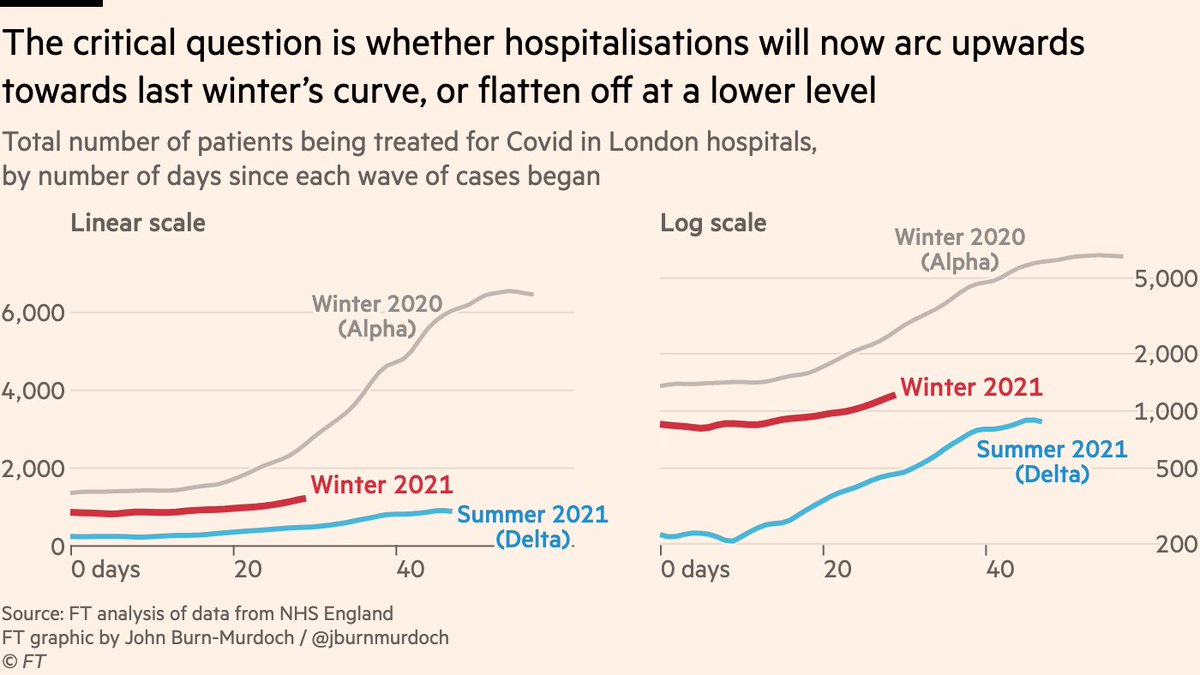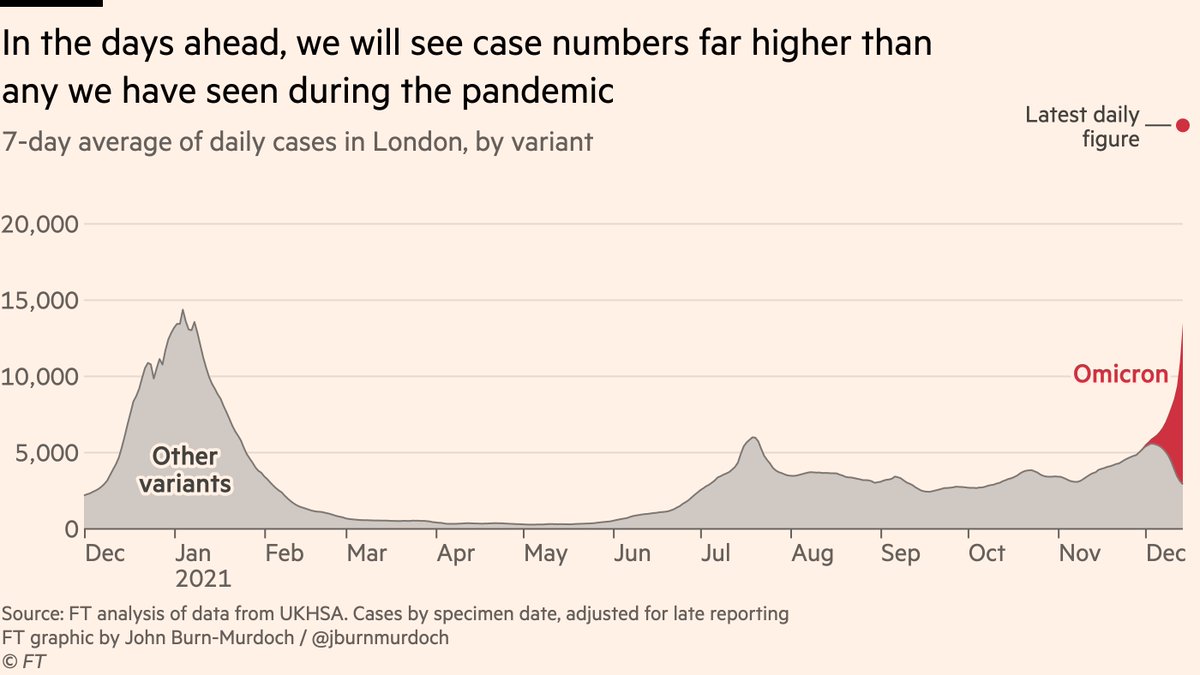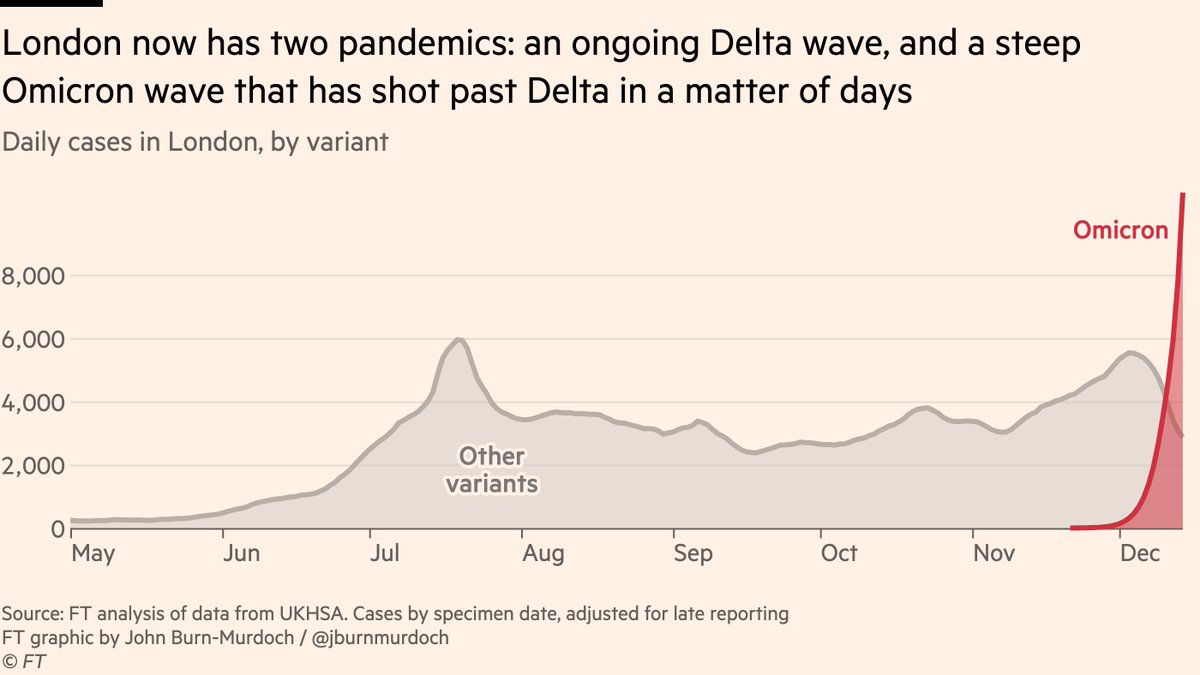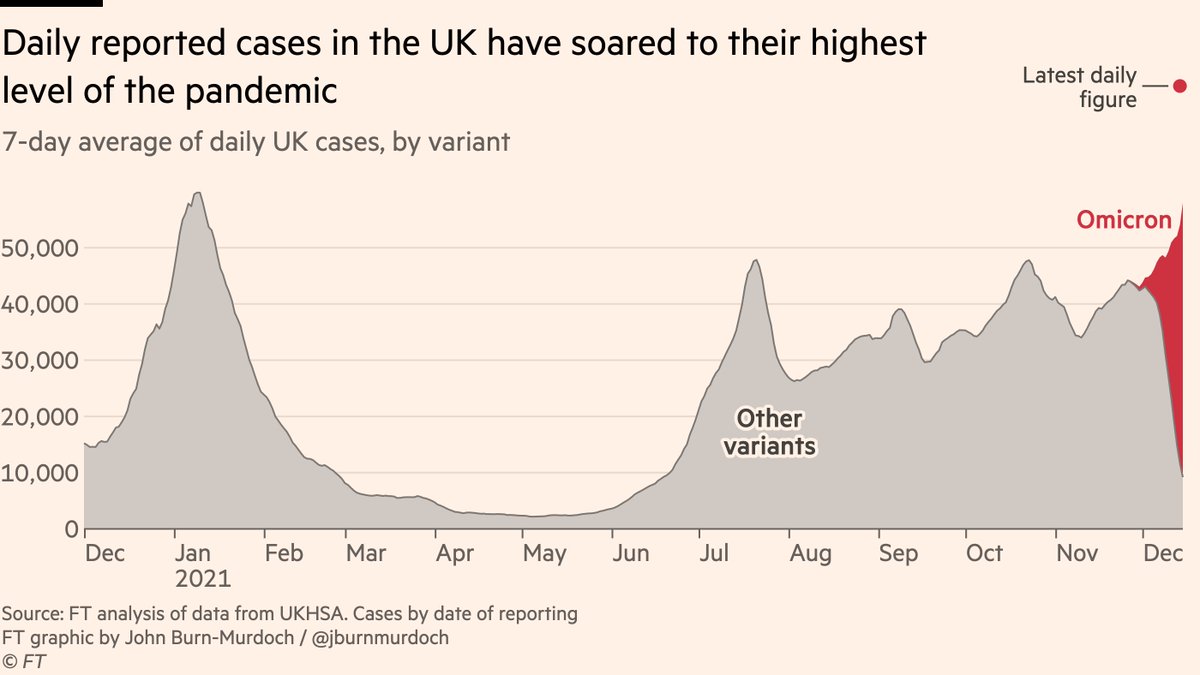
Some quick thoughts about the important new paper out of South Africa looking at Omicron severity medrxiv.org/content/10.110…
1) Study finds that controlling for time period, Omicron cases markedly less likely to be hospitalised
To me this is two things:
• "The @nataliexdean point": Omi’s immune evasion means lots of mild cases in people w/ good protection against severe disease
To me this is two things:
• "The @nataliexdean point": Omi’s immune evasion means lots of mild cases in people w/ good protection against severe disease
https://twitter.com/nataliexdean/status/1468988174693289994
• And there may also be some innate reduction in severity at work here (but we don’t know yet)
https://twitter.com/jburnmurdoch/status/1471954637221683202
2) Controlling for time period, Omi *hospitalisations* roughly as likely as Delta hosp to become severe
To me, this is showing that once in hospital, that’s a good sign your main immune defences have been breached, so at this point Omi and Delta broadly same in terms of outcome
To me, this is showing that once in hospital, that’s a good sign your main immune defences have been breached, so at this point Omi and Delta broadly same in terms of outcome
3) Study finds that when *not* controlling for time period, in-hosp outcomes for Omi are better than they were for earlier Delta wave.
To me, this shows the average Delta wave case had v little immunity, so outcomes back then were worse than now, when most are recovered or vaxxed
To me, this shows the average Delta wave case had v little immunity, so outcomes back then were worse than now, when most are recovered or vaxxed
As authors say, very difficult if not impossible at this stage to disentangle immunity-driven effects from Omi-driven effects.
If my three points are fair, it means:
• All countries could see drop in case-hospitalisation-rate because they will all have the same dynamic of Omicron being relatively more likely than Delta to infect vaxxed/recovered people, who have good protection against severe disease
• All countries could see drop in case-hospitalisation-rate because they will all have the same dynamic of Omicron being relatively more likely than Delta to infect vaxxed/recovered people, who have good protection against severe disease
• But once people *are* in hospital being treated for Covid, whether Omicron or Delta this is serious, so those for-Covid hospital numbers will be as serious an indicator now as they have ever been
Thoughts? Comments? Questions?
Also we’ll be discussing all of this and more in our weekly Twitter Spaces session tomorrow at 2pm GMT / 9am Eastern
Also we’ll be discussing all of this and more in our weekly Twitter Spaces session tomorrow at 2pm GMT / 9am Eastern
https://twitter.com/jburnmurdoch/status/1473320554342101006
• • •
Missing some Tweet in this thread? You can try to
force a refresh














